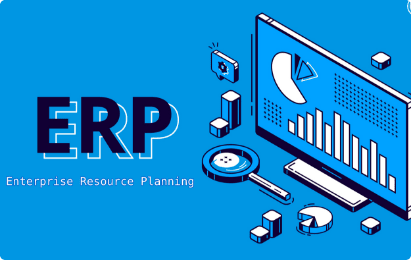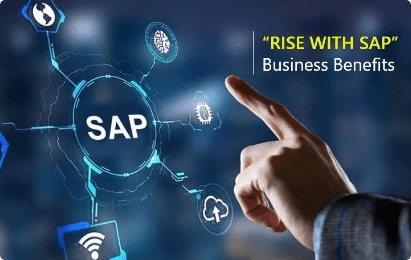
Blog
Orane’s blog posts keeping you up to speed with what’s hot in the world of business.
Don’t Treat SAP Implementation as an IT Project

Introduction:
The complex world of business, dynamic markets, and globalization demands solutions that help organizations streamline processes to gain greater visibility and transparency into operations and enable better decision-making.
ERP software has emerged as a solution to meet the pressing needs of the world of work and help organizations increase the efficiency of mission-critical business processes and improve collaboration across the different departments and teams.
SAP, one of the most popular inhabitants of the ERP universe, helps organizations achieve all of the above and helps them design innovative growth strategies to move further along the competitive curve.
SAP implementation, given its business impact, is a serious investment, especially as it drives enterprise transformation. To achieve the desired outcomes, however, close attention must be paid to ‘how’ the SAP implementation is conducted. While it can be tempting to look at SAP implementation as yet another enterprise IT project, given the scale of SAP implementation, its impact on business, and its capacity to influence business outcomes, it should not be treated as an IT project.
Here are a few other compelling reasons why SAP implementations are different.
SAP implementation is a business change program
SAP implementation is a program designed as a business change program. It is not an IT project. It cannot be implemented in an IT silo led by the IT management with the CFO in tow to control costs.
SAP implementations need to take into account the business goals and objectives and have to be designed such that they can unify the entire business for greater clarity and transparency. The SAP implementation has to be viewed as a tool that can deliver enterprise transformation and, hence, should not, and cannot, be treated as straightforward IT projects.
The first step for a successful implementation thus starts from identifying the affected business functions that need change and improvement to deliver certain specific business outcomes. The technology, process and workflow improvement then follow suit.
Industry knowledge and domain expertise drive project success
In most IT projects, the project manager is a facilitator responsible for managing people, tasks, and activities required to deliver a project on time. In SAP implementations, the role of the project manager is far more strategic.
SAP implementation is complex because of the multitude of things it touches and their consequent business impact. It is essential to craft a business blueprint and create a body of work that aligns business requirements to the SAP model. It is equally important to ensure robust project preparation by clearly defining project scope, goals, and objectives. It is also necessary to identify, onboard, and train team members, capably build and test a complete business and system environment and provide go-live support.
These elements can make SAP implementations a nightmare and SAP project management a gargantuan effort.
An able, pro-active SAP implementation project manager has to not only ensure the above but also anticipate problems that the project can encounter. This depth of understanding can only be achieved with deep business understanding and domain knowledge complementing exhaustive SAP implementation experience. The project manager has to capably adjust and recalibrate on their feet to ensure real improvements and drive project success.
SAP implementations need a curated delivery methodology
A one-size-fits-all SAP implementation strategy is a roadmap for disaster. SAP implementations have to be designed to suit the needs of a business to deliver specific business outcomes. Successful and functional implementations have to employ a delivery methodology that starts by accounting for the business needs and expected outcomes to develop a comprehensive project plan that outlines the project scope, goals, and objectives.
The implementation plan has to develop a business blueprint, create a complete business and system environment, obtain business approvals, prepare the system for production release, and ready the organization for Go-Live.
The delivery methodology also has to deliver a go-live support plan and run the SAP solution & maintain the instance to continue getting the desired results from the implementation. Given all these moving parts and the associated business impact, curating an implementation plan for SAP is far different from other IT projects.
Establishing strong project governance is not optional
Not that IT projects do not need project governance, but strong and streamlined project governance for SAP implementations is essential as it ensures timely implementation success. With established governance protocols that take industry best practices into account, it becomes easier to align project team decisions with project goals.
Employing strong project governance and control are imperatives to avoid scope creep and escalating costs. It also helps in aligning SAP implementation with organizational vision and objectives and consequently avoids timeline overruns.
After all, it’s not all about technology
Along with all the things mentioned above, SAP implementations also have to account for time and effort spent on elements such as customized training. It has to ensure that the processes are not further complicated, and that the implementation optimizes processes and leads to process adoption and advocacy. For this, it is equally important to account for change management, ensure proper communication, and provide the right training and coaching to the end-users to overcome change resistance.
Finding the right SAP implementation partner who has deep industry and domain knowledge complementing SAP expertise is half the implementation battle won. The rest can be fought by following the above points.
Subscribe to our communication
You agree to receive newsletters, marketing communication and latest developments from us.

6 Tips to Boost Your Business Performance
- August 19, 2022

How ERP Implementation is Essential for Businesses? – Top 5 Reasons
- August 19, 2022

Take your Data into next level
- August 19, 2022

Rise with SAP: Business Benefits
- August 19, 2022

SAP Masterdata Management
- August 19, 2022

